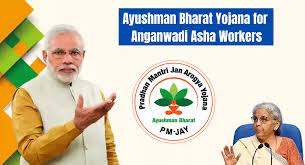- Recent Congressional hearings, including Meta CEO Mark Zuckerberg’s public apology, have shone light on the disturbing surge in online child exploitation, raising global worries about children’s safety on social media platforms.
- Parents and campaigners around the world are putting pressure on tech firms to boost accountability and provide safer online environments for children, stressing issues that go beyond privacy concerns and include larger security dangers.
Risks for Children’s Online Safety
- UNICEF Report findings: A UNICEF report titled ‘The Metaverse, Extended Reality, and Children’ highlights substantial concerns connected with virtual settings, such as exposure to explicit content, cyberbullying, and data privacy violations, which might have serious consequences for children’s well-being.
- Emerging dangers: Virtual environments and games, while not entirely immersive, provide risks such as exposure to inappropriate content and exploitation, raising concerns about the ethical implications of children’s digital activities.
Children’s Issues Online
- Children may encounter inappropriate content such as violence, pornography, or hate speech.
- Online Predators and Grooming: Children are at danger of encountering online predators who use social media and gaming platforms to develop relationships and groom them for exploitation.
- Cyberbullying: Children can be victims of cyberbullying, which involves using digital technology to harass, threaten, or humiliate others.
- Privacy Concerns: Because of a lack of understanding of privacy settings, children may unwittingly share personal information online.
- Excessive screen time and continuous use of digital devices can lead to addictive behaviours in children, affecting their mental and physical health, academic performance, and social connections.
Challenges Posed by Generative AI
- Generative AI presents both opportunities for creativity and learning, as well as hazards such as the spread of misinformation and bad content that may negatively impact children’s cognitive development.
- Vulnerability to disinformation: Children with developing cognitive abilities are especially vulnerable to disinformation spread by AI-generated content, raising worries about the impact on their views and behaviours.
Measures in India: The DPDP Bill, 2023
- The DPDP Bill defines minors as people under the age of 18. This concept recognises that children are especially vulnerable and deserve enhanced protection for their personal information.
- Data Processing Obligations: The bill imposes three particular conditions on data processing businesses that handle children’s data:
- Getting verifiable parental consent: As previously stated, businesses must obtain proper authorization from a parent or guardian before processing a child’s data.
- Not harming children: Data processing activities should not endanger or exploit minors in any way.
- Not tracking or aiming ads at children: Entities are not permitted to track children’s online activity for targeted advertising purposes.
- Exemptions: The measure authorises the government to exclude certain companies from parental consent requirements, as well as tracking and targeting adverts for particular objectives. However, any exemptions must be in the best interests of the kid.
Future Prospects
- To ensure the well-being and privacy of children, tech businesses should prioritize’safety by design,’ including principles from the Convention on the Rights of the Child into their platforms.
- legislative Intervention: Governments must regularly examine and update legislative frameworks to handle developing difficulties in child safety online, such as countering harmful content and behaviour.
- Community Engagement: Maintaining current policies and practices that safeguard children offline should be extended to the digital arena, encouraging stakeholders to work together to create a safer online environment for children.
Source: https://www.techopedia.com/shielding-innocence-safeguarding-children-in-the-digital-jungle



